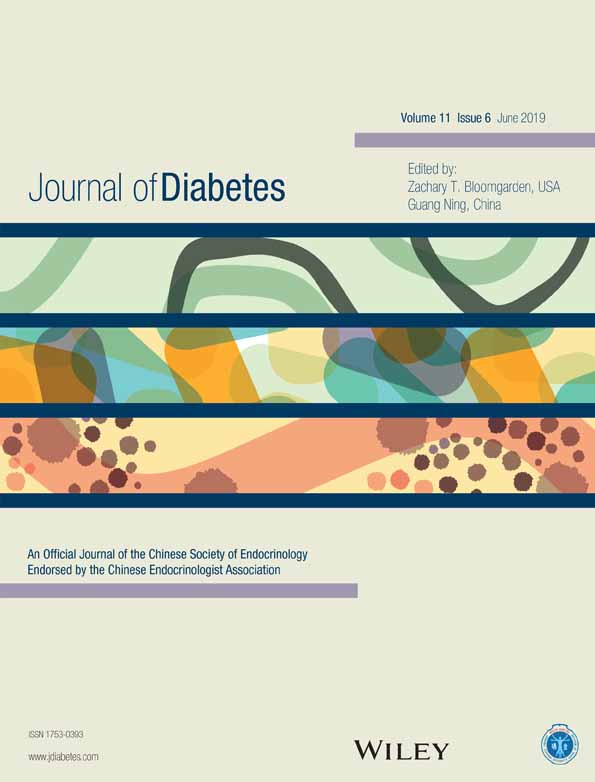Shortage of energy intake rather than protein intake is associated with sarcopenia in elderly patients with type 2 diabetes: A cross-sectional study of the KAMOGAWA-DM cohort
在老年2型糖尿病患者中与肌萎缩相关的是能量摄入不足而不是蛋白质摄入不足:一项KAMOGAWA-DM队列的横断面研究
Abstract
enBackground
Energy intake is important for the maintenance of muscle mass. The relationship between energy intake and sarcopenia in elderly patients with type 2 diabetes (T2D) has been unclear.
Methods
Using a brief-type self-administered diet history questionnaire we assessed habitual food and nutrient intake of patients with T2D aged ≥65 years, all of whom were Japanese and physically active, taking part in the KAMOGAWA-DM cohort study. Patients' body composition was evaluated by bioimpedance analysis. Sarcopenia was defined as having both a grip strength of <26 kg for men and <18 kg for women and a skeletal muscle mass index of <7.0 kg/m2 for men and <5.7 kg/m2 for women. Logistic regression analyses were used to investigate the effect of energy intake on the presence of sarcopenia in this cross-sectional study of 391 patients (205 men, 186 women).
Results
Fifty-five patients (14.1%) were diagnosed as having sarcopenia. Energy intake was significantly lower in patients with sarcopenia than without sarcopenia (mean ± SD [n = 366] 1498.8 ± 389.4 vs 1786.2 ± 706.7 kcal/d, respectively; P = 0.016). After adjusting for age, sex, exercise, smoking status, HbA1c, and body mass index, patients' energy intake (per 100 kcal) was negatively associated with the presence of sarcopenia (odds ratio 0.86; 95% confidence interval 0.78-0.95; P = 0.001).
Conclusion
Energy intake was negatively associated with the presence of sarcopenia in elderly patients with T2D.
Abstract
zh摘要
背景
能量摄入对于肌肉质量的维持来说很重要。老年2型糖尿病患者的能量摄入与肌萎缩之间的关系目前尚未明确。
方法
使用简要型自我填写的饮食史问卷,我们对年龄≥ 65岁的2型糖尿病患者的日常食物与营养摄入进行了评估,所有的患者都是日本人并且积极锻炼,他们参与了千叶-糖尿病队列研究(KAMOGAWA-DM cohort study)。通过生物阻抗分析来评估患者的身体组成。肌萎缩的定义为男性握力< 26 kg并且骨骼肌质量指数< 7.0 kg/m2,女性握力< 18 kg并且骨骼肌质量指数< 5.7 kg/m2。使用logistic回归分析法在该项纳入了391名患者(男性205名,女性186名)的横断面研究中,调查能量摄入对肌萎缩的影响。
结果
有55名患者(14.1%)被诊断为肌萎缩。肌萎缩患者的能量摄入显著低于无肌萎缩的患者(平均数 ± SD[n = 366]分别为1498.8 ± 389.4与1786.2 ± 706.7千卡/日;P = 0.016)。校正年龄、性别、运动、吸烟状态、HbA1c及体重指数后,发现患者的能量摄入(每100千卡)与肌萎缩之间呈负相关(优势比为0.86;95%置信区间为0.78-0.95;P = 0.001)。
结论
在老年2型糖尿病患者中能量摄入与肌萎缩之间呈负相关。




